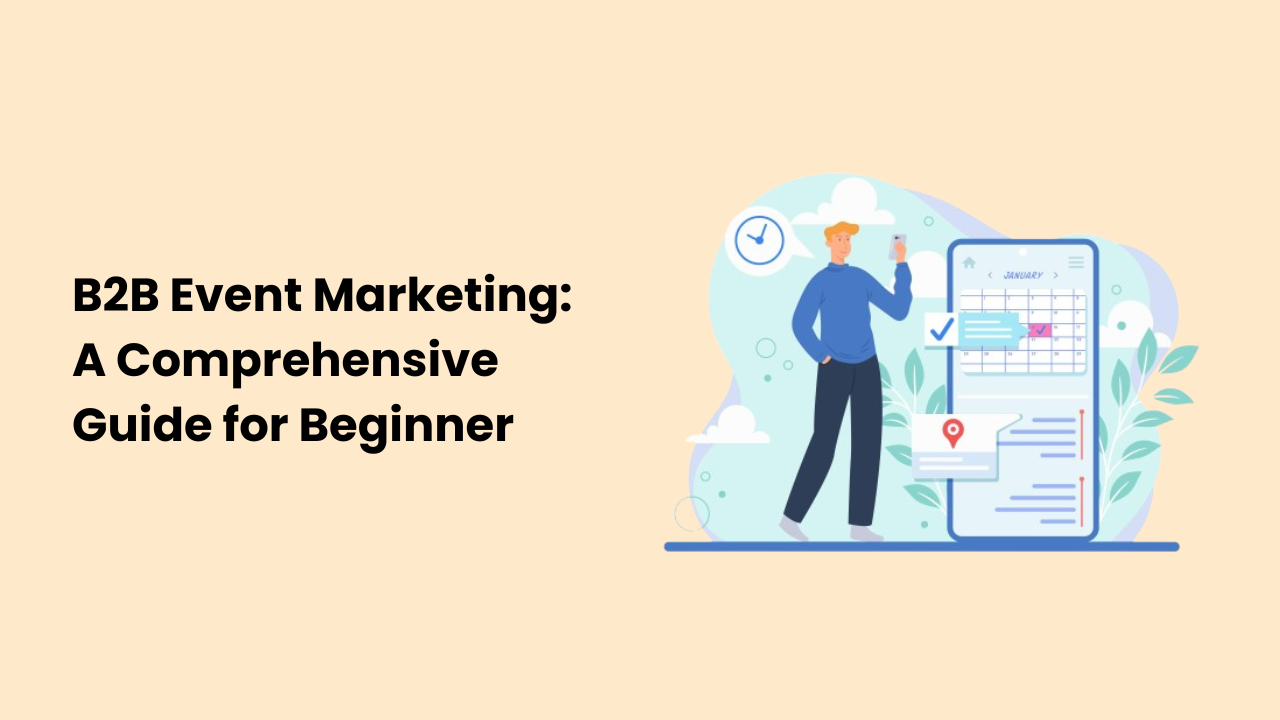A smart way for businesses to meet is through B2B event marketing. People get to know each other better and sales go up. It can look hard at first for newbies. This guide simplifies the process, providing types, examples, and best practices. Learn how to succeed step by step.
What does B2B event marketing mean?
Making events for businesses is what B2B event marketing is all about. These events bring companies together for teamwork. They help showcase expertise, goods, or services. The goal is to promote trust and build partnerships. Events may happen in person, online, or a mix of the two.
Types of B2B Event Marketing
Different types of B2B event marketing are used to reach different goals. Each type is used for a different thing. Let’s explore the most popular ones:
1. Trade Shows
Trade shows are large-scale events. Businesses use them to show products and services. They attract a wide audience, including possible clients. These events center on innovation and networking.
2. Conferences
Conferences are knowledge-focused events. They feature panel talks, workshops, and speakers. Attendees gain insights into business trends. These events are great for thought leadership.
3. Webinars
Webinars are online-only events. They are cost-effective and widely available. Businesses use them to teach and engage audiences. They work well for sharing expertise abroad.
4. Networking Events
Networking events connect business professionals. These events are relaxed and interaction-driven. They aim to promote partnerships and collaborations. They’re ideal for expanding business networks.
5. Product Launches
Product launches highlight new products. They create excitement and attract notice. Businesses use them to promote innovations. These events boost company visibility and sales.
Key Elements of B2B Event Marketing
Every event depends on certain key components. Mastering these ensures smooth execution and great impact:
1. Event Ticketing
A robust event ticketing system improves attendee registration, giving a quick and seamless online booking experience. It ensures ease by allowing attendees to book tickets from anywhere, eliminating geographical or timing barriers. Automation of payments in ticketing systems lowers manual errors, saving organizers important time and resources. A well-organized ticketing method reflects professionalism, making a positive first impression for event participants.
2. Event Check-In
An efficient event check-in system improves attendee satisfaction by minimizing delays during the entry process. Long queues and disorganized check-ins can frustrate guests, tarnishing the event experience before it even starts. Implementing tools like QR codes or RFID technology guarantees fast and error-free attendee verification. A smooth check-in process adds to the overall operational flow, leaving a positive impression on attendees.
3. Promotions
Effective promotions play a vital role in driving attendance and creating buzz around the event. Social media campaigns, targeted emails, and online ads successfully capture attention and build anticipation. Tailored promotional efforts ensure that the message resonates with the intended audience, improving engagement rates. Highlighting key event features like guest speakers or networking opportunities builds interest and excitement among potential attendees.
4. Engagement
Keeping attendees involved during the event is critical for ensuring a meaningful and impactful experience. Interactive sessions like live Q&A or audience polls encourage participation, keeping the energy high throughout the event. Encouraging open talks during panels or workshops builds better connections between attendees and the hosting brand. Engaged attendees are more likely to share positive feedback and stay loyal to your business.
Best Practices for B2B Event Marketing
Follow these B2B event marketing best practices to achieve success:
1. Set Clear Goals
Start with specific goals for your event. Decide if your goal is lead creation, networking, or sales. Clear goals lead to planning and execution.
2. Choose the Right Event Type
Match your event type to your goals. For teaching, webinars work best. For product showcases, trade shows are ideal. Picking the right style ensures better results.
3. Use Reliable B2B Event Solutions
The right tools ease planning. Invest in quality event ticketing and management tools. These tools save time and improve the visitor experience.
4. Understand Your Audience
Research your goal audience thoroughly. Know their tastes and pain points. Create content and tasks that resonate with them. Satisfied attendees are more likely to change.
5. Measure Performance
Track key data after the event. Look at attendee comments, lead generation, and ROI. Use data to improve future events.
Benefits of B2B Event Marketing
1. Lead Generation Events draw high-quality prospects. They offer businesses direct access to possible clients.
2. Brand Awareness Events showcase your expertise and worth. They position your company as a leader in the industry.
3. Networking Opportunities
B2B events help build strong business connections. These relationships lead to long-term friendships.
4. Sales Growth
Successful events drive sales and income growth. Engaged attendees are more likely to buy services.
Conclusion
B2B event marketing is a powerful approach for business growth. It connects companies, boosts brand exposure, and drives sales. By following best practices, you can build impactful events. Use tools like event ticketing and event check-in methods for a smooth experience.



